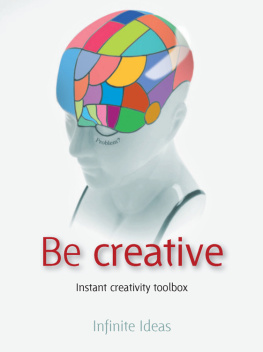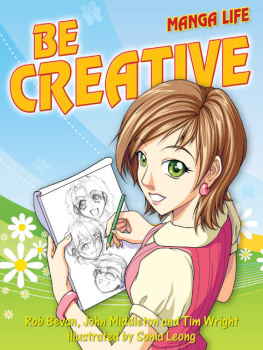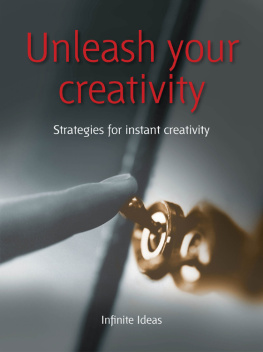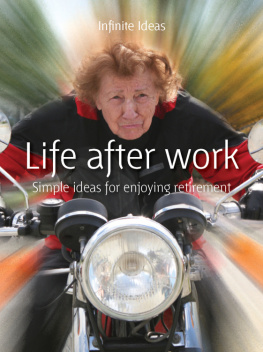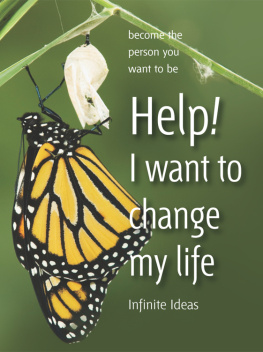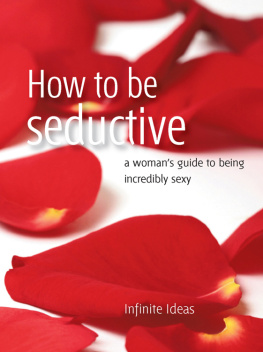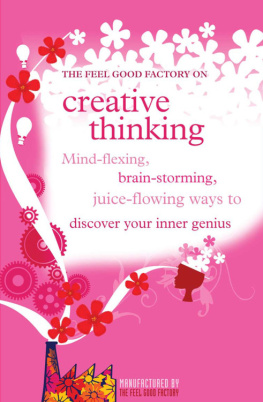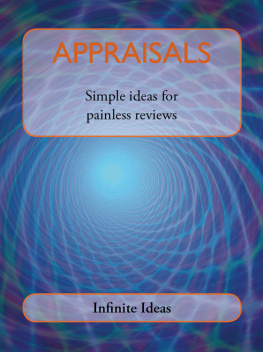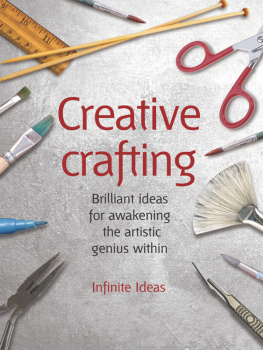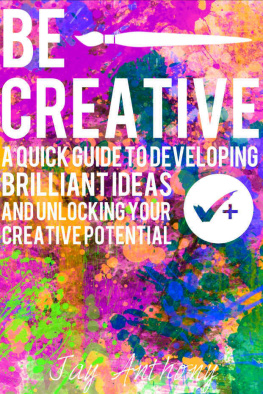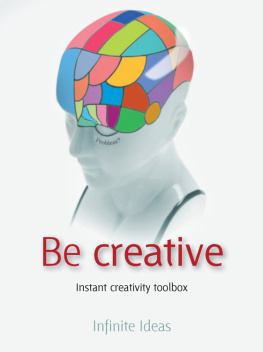Contents
Be creative
Instant creativity toolbox
Infinite Ideas
Previously published in paperback as Be incredibly creative

Introduction
If youve just picked up this book, chances are the first thing you want to hear is that anyone can be creative. Well, youre right. We dont believe creativity is something youre born with, like blue eyes or blond hair its something were ALL born with. We all began life with the ability to play, to experiment, to examine things until they break and then to throw tantrums when we werent able to change the world around us. Trouble is, many of us forget that creativity has its roots in these childhood abilities and that growing out of them doesnt just stifle our inner child, it stifles our creativity.
The second thing youd probably like us to say is that being creative is easy. It isnt. Creativity is hard work, or at least something you need to work hard at. Recognising that you need to apply the same discipline to your creative life as you do to what you normally think of as work is a big step to becoming more creative. Knowing what you want to do and then what you have to do to make it happen is one big difference between adult creativity and childs play. This realisation means that next time you get the urge to change the world around you, instead of just throwing a tantrum like a child, youll have the means to do so.
But if this is all beginning to sound like too much hard work, weve also got some great suggestions about how to make work seem more like play. If theres one thing this book sets out to convince you of, its this: you need to take your play time more seriously AND have more fun at work.
1. Start now
How to start being creative with the things around you, right here, right now; no excuses, no prevarication.
For many people, taking that first step is the most difficult aspect of any creative task. It is not always the best approach to start at the beginning. Quite often, you need to get to the point where you can see the whole of the project and understand the style of the piece before you can deliver an opening that really sets it all off.
Sometimes you tackle the most difficult and challenging problem first. Usually this is because youve already sussed out how to solve it, or youre so bursting with energy and excitement that you need something major to attack.
On the other hand, peripheral matters can often be good starting points, because they can be done easily and quickly. Theres a lot to be said for getting something done, even if its small.
So pause from reading for a moment and take stock of all the things that are lying around you right now. If youre an organised person, you may well have a whole heap of really useful research material and tools ready and waiting. If youre not organised, you probably still have a whole heap of really useful research material and tools ready and waiting, but you just dont know it yet.
This book is very much about looking at everyday things in a different light and putting them to use in unusual ways. So dont ever think that you have nothing to get started with. Just use what you can find.
Heres an idea for you
If you need proof of how pregnant with creative possibility found objects can be, take a look at foundmagazine.com . Youre almost bound to find something there that can become your jumping off point for a new idea.
2. Do your research
You can develop the kind of instinct that will help you effectively sift and sort everything that comes your way.
Creative people are always curious, always on the lookout for new stimuli and therefore always researching in one way or another. Develop a sense of curiosity about everything that confronts you. Be vigilant. Ask why? a lot. Dont accept anything at face value.
One easy way to engage in this process of constant research is to take photos of things that catch your eye. Another is to squirrel away little bits of information (and intriguing bits of rubbish!) as you find them, building up a personal collection of seemingly useless and unrelated facts, newspaper cuttings, URL bookmarks, postcards, brochures, food packaging anything you like. This process is known as jackdawing.
Now think about your prospecting/mining techniques. Do you sift through things in fine detail or blast away at big chunks of the research landscape with a stick of dynamite? Both approaches are valid. Sifting gives you a good chance of picking up even more nuggets that you werent expecting to find (and which may take you off on a tangent into a completely different area of research). Blasting may expose not just one seam, but many; thus encouraging you to keep digging and not curtail your research at the first sign of success.
In the end youll be able to synthesise your research materials in any number of ways, with magical results.
Heres an idea for you
Cross-referencing and linking your research either deliberately or at random is a fantastic way to get started with new ideas. Ask yourself: What links the last three books Ive read? Or pick three areas youve looked at quite separately say, cooking, code and collage jam them together and see what kind of relationship your imagination can forge between them.
3. Know your history
Repeat good tricks and youll end up working faster and smarter.
When you start a new project try looking back over past work and picking key elements that reveal themselves as your standard working devices. Pick up, too, on key themes that keep coming back to haunt you. If you inspect your past work like this regularly, youll always be starting a new piece of work from a position of self-knowledge. And decisions about what to accept or reject from your creative past will be that much more solid.
One benefit of cataloguing and coming to terms with your own strengths and weaknesses is that youll learn to achieve simple effects much more quickly. And if some of the standard elements of what youre doing are easily repeatable, youll have more time to concentrate on the new. In this way, ideas can be like software libraries.
Stand-up comedians build up libraries of jokes and stories so theyve got access to a broad range of material that has been road-tested and works when reacting to a specific situation, audience or heckler.
Tomorrow, try to do exactly the same things as you did today at exactly the same time of day and for the same period of time. Note the similarities and differences in terms of how the day actually unfolds and the different feelings each day elicits. If you can, try repeating this for a whole week. By day seven, how do you think youll feel? Terminally bored or creatively inspired? Probably a little bit of both.
Heres an idea for you
Replay the same scenes with different consequences. Shakespeare did this with similar characters in different plays (ambitious usurpers, jealous lovers, foolish kings, parted lovers), and the different consequences led to very different drama. Could you take four or five generic elements of your creative work and keep replaying them in different configurations like this?
4. Be organised
A big part of being creative is not simply about being inspired, its about getting things done.
The world is infested with time-management devices, theories and techniques but dont fall for them! At the core of all this mumbo-jumbo lies just one essential device: the good old-fashioned things-to-do list.
You need to concentrate on three things:
1. realistic prioritisation of the tasks
2. breaking down big tasks into smaller achievable ones
3. making a new list every day
Remember Paretos 80/20 rule: 80% of results come from 20% of efforts. Roughly one in five of the items on your list is truly essential. Everything else may be useful, but the world wont end if they dont get done.
Next page
